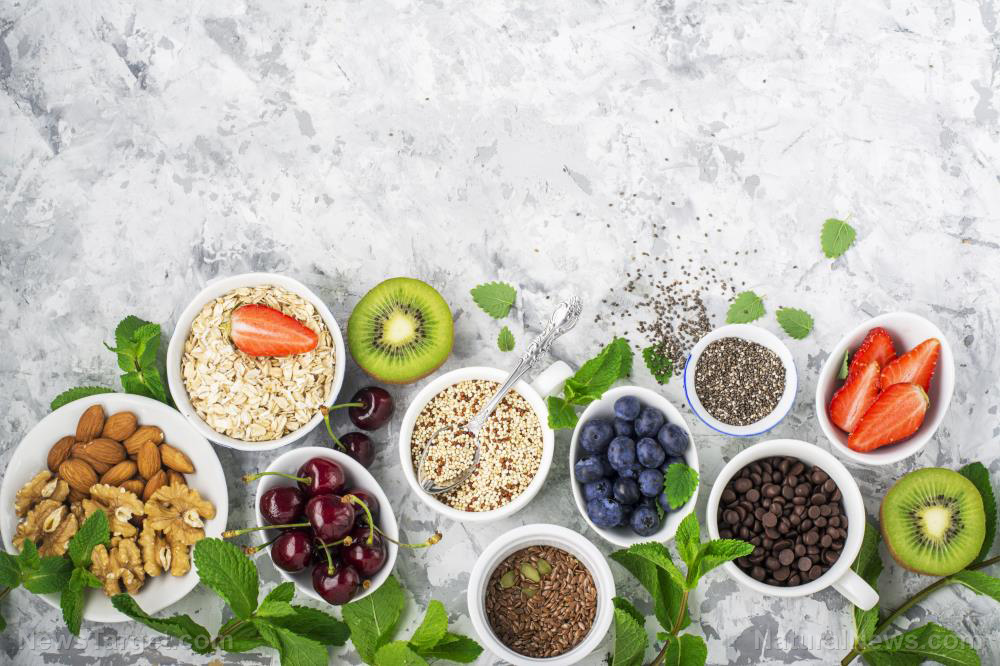Inulin-rich foods provide prebiotic fiber that can help you lose weight and stabilize your blood sugar
05/16/2019 / By Cassie B.

You know that fiber is good for you, but are you aware that not all types of fiber are created equally? If you’re looking to raise your fiber intake, honing in on one type of fiber in particular can be beneficial in terms of your health, digestion and weight: inulin.
First, it’s important to understand that there are different kinds of fiber. Although fiber is often labeled as being either soluble or insoluble, there are different varieties within these classifications. Inulin is a type of soluble fiber that is found naturally in some plants. What makes it special is the fact that your small intestine cannot digest it because it’s made of fructose molecules. Instead, it continues to make its way down your digestive tract into the large intestine, where it acts as a prebiotic and serves as food for the beneficial probiotic bacteria that reside within your gut.
The many benefits of inulin
When your gut bacteria consume inulin, they get the strength they need to fight off pathogens in your body, preventing infections, promoting nerve function, and giving your immune system a boost. This also raises the number of good bacteria like Lactobacilli and Bifidobacteria. The probiotics that are supported by inulin help to regulate digestion, which means it’s stellar when it comes to promoting a healthy digestive tract.
Perhaps one of its most attractive benefits, however, is its ability to promote weight loss. Like other types of fiber, it helps you feel full for longer and helps curb overeating. However, studies highlight the enormous potential of inulin in particular, with one study of overweight and obese adults finding that people who took 21 grams of inulin per day noted weight loss and lower hunger hormone levels over a period of 12 weeks, while a control group gained weight during the same period. Another study that compared inulin with a different type of fiber, cellulose, in prediabetics found that inulin was far superior when it came to losing body weight.
It can also help to balance blood sugar levels. Because it slows down the process of digestion, it slows the digestion of carbohydrates by extension. Blood sugar levels normally rise as your body breaks down carbs, and digesting them quickly can cause dangerous blood sugar spikes and immense hunger. With inulin slowing digestion, however, sugar is released into the bloodstream at a slower pace, promoting stable blood sugar levels.
There are plenty of other benefits, too. It promotes healthy bowel movements and can help reduce the inflammation experienced by sufferers of irritable bowel syndrome. It may also help those with ulcerative colitis and Crohn’s disease. Inulin has even shown potential to help prevent colon cancer, although most of the research until now has focused on animals. One human study, however, has shown that inulin makes the colon an unfavorable environment for cancer development.
How to consume more inulin
With so many great benefits awaiting, you might be wondering which foods will give your body the inulin it needs. The good news is that most people are able to get enough of it simply by making improvements to their diet.
Vegetables like asparagus, leeks, Jerusalem artichokes, garlic, onions, and dandelion greens are all good sources of inulin that can become regular parts of your diet. You can also find inulin in bananas, jicama, and wild yams. It’s also added to some processed foods in the form of chicory root extract or powder, but it’s far better to get your inulin from whole foods. Experts say to aim for getting 30 grams of fiber in your diet daily, with at least five coming from inulin or prebiotic foods.
Increasing your fiber intake in general has long been considered a great way to keep your hunger and weight under control, but inulin in particular shows tremendous value when it comes to fighting obesity and diabetes.
Sources for this article include:
Submit a correction >>
Tagged Under:
This article may contain statements that reflect the opinion of the author
RECENT NEWS & ARTICLES
COPYRIGHT © 2017 SUPER FOODS NEWS





















